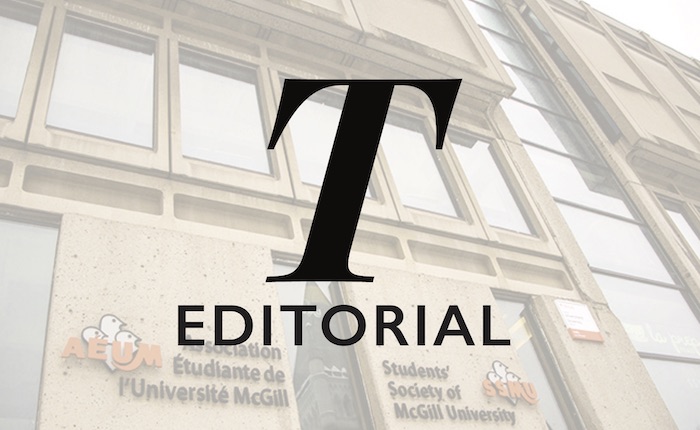Last week, the Students’ Society of McGill University (SSMU) posted a schedule for a series of mandatory club trainings on Sept. 14 and 15, requiring attendance from between two and five executives or members. These training sessions included workshops on the responsibilities of SSMU clubs, their tasks regarding financial reporting, and sexual violence awareness training. Clubs that fail to meet the attendance quota will face sanctions that may hinder future operations. Students responded with complaints about the short notice and excessive time commitment required for the training sessions: However, the condensed nature of the training was attributed to the feedback SSMU received last year to keep training less spread out.
This concern comes just a few months after SSMU sanctioned over 100 clubs in early February 2019, leading to widespread vexation in the McGill community. Going into the new school year, SSMU must take steps to repair its relations with SSMU-registered clubs and the McGill community by easing the complexities of club management. Due to their vital role in fostering community on campus, SSMU must maximize its supportive role to better help clubs prosper.
On its website, SSMU presents creating a club as a straight-forward task; the site outlines six steps to maintaining club status including attending all workshops and completing club audits. As the recent training sessions demonstrate, the seemingly easy steps often involve more complexity. Club audits, for example, may prove difficult for clubs without a financially literate executive. While being a SSMU-registered club commands several benefits, SSMU must increase assistance for clubs wishing to gain and retain their status, especially newer clubs with fewer resources and less support than their more established counterparts. It could be argued that it’s up to clubs to find solutions to the issues of maintaining status, but SSMU also has a responsibility to foster community through campus clubs—especially during a time of displacement due to the University Centre closure—and they ought to extend their support in ways that will ease the difficulties of club management.
“Going into the new school year, SSMU must take steps to repair its relations with SSMU-registered clubs and the McGill community by easing the complexities of club management.”
One place SSMU could make improvements is in the proffering of their workshops. SSMU workshops present necessary information on all the tasks clubs must carry out to maintain their status. This includes auditing, financial literacy, equity, sustainability and gendered and sexual violence awareness workshops. However, the current formatting of these sessions do not maximize SSMU’s potential to assist clubs in learning SSMU’s vital regulations. For one, the one-week notice of this year’s training proved highly inconvenient for several clubs who were still in the midst of assembling their executive team and member base. In the future, SSMU should give sufficient notice to allow clubs enough time to assemble their teams. Secondly, a more effective and convenient way to deliver workshops would be through online modules, a similar way the new Sexual Violence Prevention module, “It Takes All of Us” is being administered. Not only would this medium be easier for executives to fit into their schedule, but online modules may increase participants’ focus since they cannot easily feign paying attention like in group workshops. Finally, if fall audits are due in January, facilitating audit workshops in September seems less useful to students who will likely have forgotten the workshop knowledge by Jan. 31. Given the consequences of last year’s sanctions, SSMU can and should take steps to facilitate and clarify bureaucratic procedures for club executives.
Another way SSMU could break down bureaucratic barriers is to categorize clubs by financial needs or number of executive members and use these classifications to assign responsibilities and support clubs accordingly. For example, SSMU could separate clubs by those with executive teams and those without: While the former may have a VP Finance to manage their audits, the latter may require more support with their finances and by granting them special status, SSMU could quickly discern which clubs ought to be given more financial instruction. Another way SSMU could categorize clubs is by distinguishing those with spending or funding needs in a certain bracket from those that are self-funded. In this case, SSMU could save time by focusing their strictest regulations on clubs with higher spending and relax their requirements on clubs with much smaller budgets.
While students deal with the lack of communal areas on campus, clubs continue to provide a space for individuals to gather and enjoy a sense of community and stress-relieving recreation. SSMU’s responsibility to foster campus community hinges on the prosperity of campus clubs and they must heed this reality in the coming school year.









